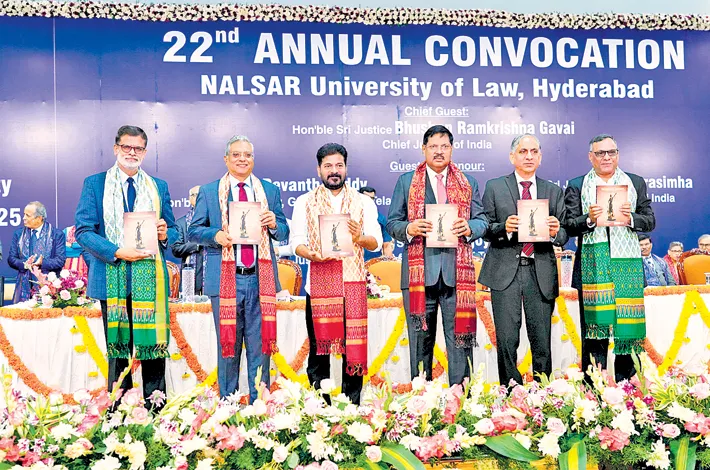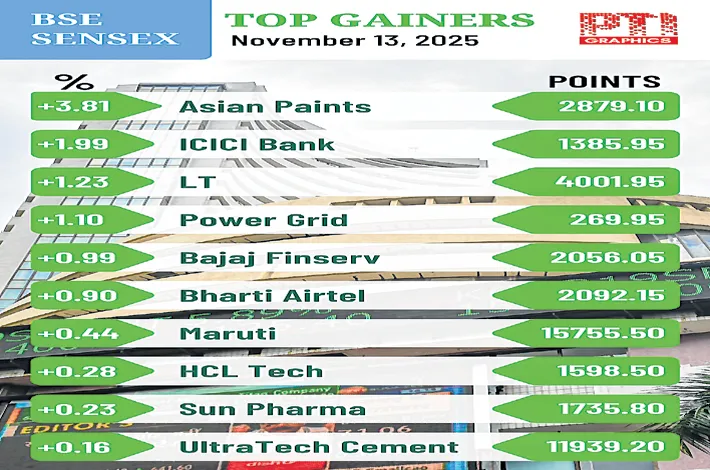Parliament cannot tinker basic structure
13-07-2025 12:00:00 AM

metro india news I hyderabad
Chief Justice of India (CJI) Justice B R Gavai described the Constitution as an instrument of social and economic transformation. He also referred to significant legal milestones in the pursuit of these Directive Principles, including the landmark Kesavananda Bharati case of 1973, where the Supreme Court clarified that Parliament had the power to amend the Constitution, but not to alter its basic structure during a lecture on the Constitution of India at Osmania University on Saturday.
Justice Gavai stressed the importance of preserving these fundamental tenets in times of social and political flux. “Even in recent years,” he noted, “there have been attempts to interfere with the functioning of judiciary and greater pressures, stressing the need to insulate and strengthen India’s federal governance from such pressures.” Justice Gavai underscored that rights without remedies are meaningless, highlighting Article 32, which empowers citizens to approach the Supreme Court in case of violations.
“While the Constitution lays the soul of the Constitution,” he observed, “a robust judicial remedies are crucial to upholding democratic freedoms.” In a deeply personal and reflective note, the Chief Justice offered five timeless examples from life — friends, family, books, holes, and health — urging young lawyers to derive inspiration for service rather than personal ambitions. He cited Dr Ambedkar’s lifelong dedication to knowledge as an inspiration for all.
Exhorts young lawyers to study abroad only on scholarships
CJI Gavai exhorted young people to study abroad only on scholarships. Some young graduates or lawyers taking loans of as much as Rs 50-70 lakh for foreign education. In fact, a small portion of a big amount like Rs 50-Rs 70 lakh can be used as an investment to start independent practice or build an office chamber. The young lawyers can go abroad for studies at a later stage in life when they are stable, he said.
Delivering the convocation address at Nalsar University of Law, Hyderabad near here, Justice Gavai advised students to go abroad for studies on scholarships and not put pressure on family finances. Further, the Chief Justice advised the passing out graduates to seek mentors for the sake of integrity and not for their power. On the "pressure to pursue a master's degree abroad", Justice Gavai said: "A foreign degree alone is not a stamp of your worth. Don't take this decision in the reflex of thought or under your peer pressure. What happens next? Years of debt, anxiety, career decisions made under financial burden."
Best talent can help Indian legal system
The Indian legal system has been facing unique challenges and delays in trials can sometimes go on for decades, Chief Justice of India BR Gavai said on Saturday. "Our country and legal system are facing unique challenges. Delays in trials can sometimes go for decades. We have seen cases where someone has been found innocent after spending years in jail as an undertrial. Our best talent can help us resolve the problems that we are facing," he said.
The Chief Justice quoted Jed S Rakoff, a senior federal district judge in the United States in this connection. The American judge in his book, "Why the Innocent Plead Guilty and the Guilty Go Free: And Other Paradoxes of Our Broken Legal System," had made the following remark. “Even though I conclude that our legal system is in bad need of fixing, I remain cautiously optimistic that my fellow (citizens) will rise to the challenge.” This comment of the American judge was quoted by CJI Gavai.








